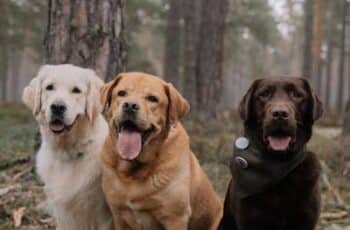As our furry companions age, they enter a stage of life where they require special attention and care. Senior dogs, typically considered those seven years and older, may face various age-related issues that necessitate a thoughtful approach to their overall well-being. From adjusting their diet to addressing health concerns, here’s a comprehensive guide on how to provide the best care for your aging canine companion.
- Understanding Age-Related Issues:a. Arthritis and Joint Problems:
One common issue among senior dogs is arthritis, which can lead to stiffness, discomfort, and decreased mobility. To alleviate these symptoms, consider providing soft bedding and gentle exercise, such as short walks or swimming.
b. Dental Health:
Dental problems are prevalent in older dogs. Regular dental check-ups and dental-friendly treats or toys can help maintain oral hygiene and prevent issues like gum disease.
c. Cognitive Dysfunction:
Cognitive dysfunction, akin to Alzheimer’s in humans, can affect senior dogs. Signs include disorientation, changes in sleep patterns, and altered behavior. Mental stimulation through puzzles and interactive toys can help keep their minds sharp.
d. Decreased Immunity:
Aging can weaken the immune system, making senior dogs more susceptible to illnesses. Regular veterinary check-ups and a balanced diet rich in nutrients can support their immune health.
- Tailoring the Diet:a. High-Quality Senior Dog Food:
Transitioning to a senior-specific dog food is essential. These formulations typically have fewer calories, controlled phosphorus levels, and added joint supplements to address the changing nutritional needs of older dogs.
b. Maintaining a Healthy Weight:
Senior dogs are prone to weight gain, which can exacerbate joint issues. Monitor their weight and adjust their diet accordingly to ensure they maintain a healthy body condition.
c. Protein and Muscle Maintenance:
Adequate protein intake is crucial for maintaining muscle mass in senior dogs. Opt for high-quality protein sources, and consider consulting with a veterinarian to determine the right protein levels for your dog’s specific needs.
d. Hydration:
Aging dogs may be prone to dehydration, so ensure they have access to fresh water at all times. Wet dog food or adding water to their kibble can also increase their fluid intake.
- Regular Veterinary Check-ups:a. Monitoring Health Changes:
Regular veterinary check-ups become even more critical as dogs age. Detecting and addressing health issues early can significantly improve the quality of life for senior dogs.
b. Dental Care:
Dental check-ups are crucial, and professional cleanings may be necessary to prevent dental problems that can affect an older dog’s overall health.
c. Vaccinations and Preventative Care:
Stay current on vaccinations and preventative care, as older dogs may be more vulnerable to certain diseases. Discuss an appropriate vaccination schedule with your veterinarian.
Conclusion:
Caring for senior dogs requires a holistic approach that considers their unique needs and challenges. From addressing age-related issues to tailoring their diet and maintaining regular veterinary check-ups, providing thoughtful and attentive care can ensure that your furry friend enjoys their golden years with comfort and vitality. Remember that every dog is unique, so work closely with your veterinarian to create a personalized care plan that meets your senior dog’s specific needs.


